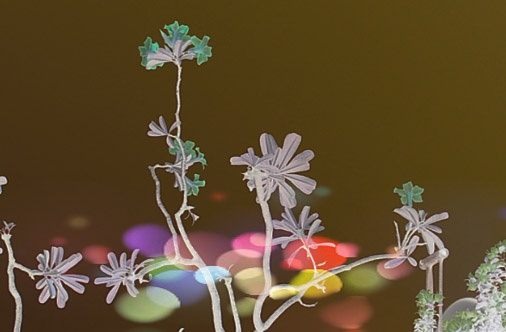
Based on a Chinese proverb, 十年树木,百年树人, “It takes a decade to grow a tree, a century to shape mankind”, Okui Lala created the following video during her 3-month residency at the People’s Court in George Town, Penang. The residency programme was part of ‘Re:engage: The People’s Court’, a project initiated by Lee Cheah Ni in 2015 under Japan Foundation Kuala Lumpur’s ‘RUN & LEARN: New Curatorial Constellations’ – a programme aimed at cultivating young curators and cultural workers in Malaysia.
From a now defunct website, we learned that the “People’s Court, located at the inner city of George Town, Penang has a rich history. It was a large grocery bazaar before World War II and later on converted into residential quarters of wooden houses. In the late 1950s, the first elected George Town local government led by the Socialist Front built three blocks of flats under the People’s Housing Program.”
Completed in 1961, the flats represented a different vision of modernity for Penang. The newly elected socialist front had hoped that independence would allow Penang to chart its own destiny, by shaking off its historical origin as a colonial port city, where great wealth could be made by the few only at the expense of the poverty and hardships endured by the majority. The flats was to be a monument to a hard-won democratic processes.
But as all monuments grow old, they also become sites of accumulation for different stories of endurance. During Okui’s stay there, she couldn’t help noticing the plants along the corridor and the trees around People’s Court. “Like the residents, they too, must have been here for quite some time” She wondered what’s the relationship between the plants, the community and the surrounding?
You can learn more about the background story as well as the artistic process by visiting Okui’s website.
Bio
Okui Lala (Chew Wen Chin) (b. 1991, Penang, Malaysia) often employs an autobiographical approach in her practice which spans photography, video, performance and public engagement. Her work explores themes of diaspora, home and belonging through the performances of domestic acts or vocational labour, such as sewing, cooking, conversing and building. Recent presentations include shows at Yamaguchi Art Centre for Arts and Media (Japan, 2019), Para Site (Hong Kong, 2018), National Art Gallery (Malaysia, 2017) and Saitama Triennale (Japan, 2016), amongst others. Okui was a recipient of the 2017 Japan Foundation Asia Centre Fellowship Grant for her research on migration, mobilities and identities in Myanmar and Japan. She lives and works in Penang and Kuala Lumpur, Malaysia. Find out more about her artworks at Okuilala.com